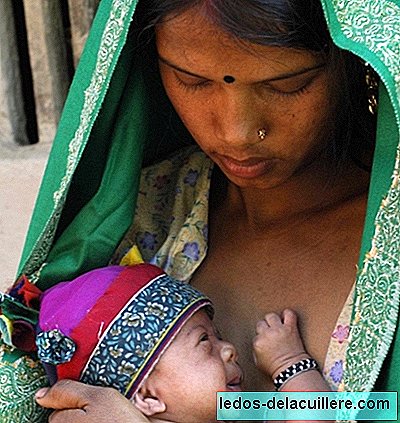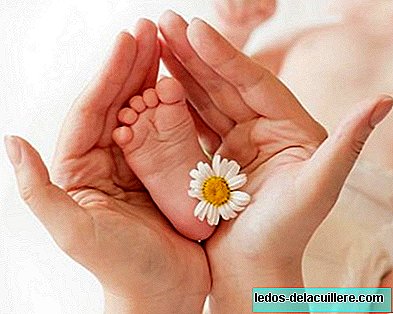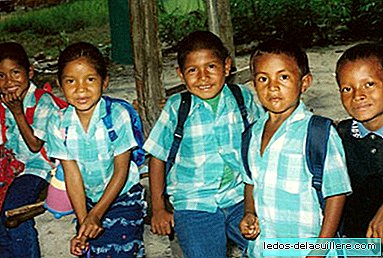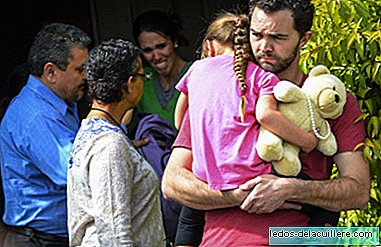
Are there better countries than others to be a mother?, according to the thirteenth Report on the State of the World's Mothers, the nations that occupy the top positions are Norway, Iceland and Sweden, while Niger is the last of a list of 165 analyzed (thus replacing Afghanistan).
Spain occupies the sixteenth place, four places below last year, below France and Portugal and above Estonia and Switzerland. Spain has a high life expectancy of 85 years, similar to that of France or Switzerland and only exceeded by Japan and a mortality rate of children under five years of 5 per 1,000.
The report analyzes the best and worst countries to be a mother based on factors such as the educational, economic, health and political status of mothers, as well as the basic well-being of their sons and daughters. Eight of the ten countries that lead the ranking are in Europe, while eight of the ten worst countries to be a mother are in Sub-Saharan Africa. Between the average of 18 years of education that women receive in Norway, and the four they can aspire to in Niger there seems to be an abyss. However, not everything ends there, because the girls in this Nordic country have a life expectancy of 82 years and in the African nation of 56.
Not to mention that 82% of Norwegians use contraceptive methods, being able to decide when they are mothers, and only 5% of Nigerians do. The report also tells us that only one in 175 Norwegian mothers are at risk of losing a child before their fifth birthday, and in Niger, however, one in seven children dies before their fifth anniversary.
And about the situation in Spain we know more about what a woman earns (0.52 euros for each unit of currency a man earns). Regarding political participation, with data from 2011, 35% of the seats are occupied by women, one point more than in the previous report.
Our country is still below other European countries in terms of the duration of maternity leave, with 16 weeks, shorter than countries like the United Kingdom or Denmark, which enjoy 52 weeks.
Malnutrition as the underlying cause of a fifth of maternal mortality
And also more than a third of child deaths, in fact seven of the ten countries that occupy the last places in the ranking, are in the middle of a food crisis.
The health status of mothers, which often suffer from malnutrition, directly influences the health of your child. In sub-Saharan Africa, up to 20% of women are excessively thin, in South Asia this figure reaches 35%. In addition, in developing countries 49% of pregnant women have anemia, a significant cause of maternal mortality that can result in premature births and low birth weight in the newborn.
"Our report shows that breast milk can save lives. All countries must implement policies and programs that facilitate breastfeeding. In Spain, 76% of mothers breastfeed their children at some time and 44% feed their babies son exclusively with breast milk during the first three months. From Save the Children we ask the Government to take note of our northern neighbors and extend maternity leave and that all hospitals have qualified personnel to inform and teach mothers how to give the breast and promote this practice ”, explains Yolanda Román, responsible for Political Incidence of Save the Children

Malnutrition is the underlying cause of more than 2.6 million child deaths per year. Among those who survive, one in four children in the world suffers from chronic malnutrition, that is, they do not have the nutrients they need, so their bodies and brains do not develop as they should. One third of children in Asia, about 100 million, suffer from chronic malnutrition. In Africa almost 2 out of 5, about 60 million in total.
Report Recommendations
All countries must make the fight against malnutrition a priority, both inside and outside your country.
Governments, donors and international agencies should prioritize investment in health workers and girls' education, two key aspects to break the cycle of malnutrition.
Governments of developing countries must commit to implement nutrition plans integrated into maternal and child health plans.
Donor countries and international agencies must comply with their financing commitments to achieve Millennium Goals 4 and 5, related to maternal and child health.
According to the report, proper nutrition during the first 1,000 days from the beginning of pregnancy is crucial to protect both mothers and children. From Save the Children we defend 6 essential measures that act as lifeguards in those 1,000 days and that can reach any mother in the world: breastfeeding, supplementary feeding, vitamin A, iron, zinc and good hygiene practices.
Images | Save the Children Source | Save the Chidren In Peques and More | The Mobile Alliance for Maternal Action (MAMA) works to improve life expectancy with mobile phones












